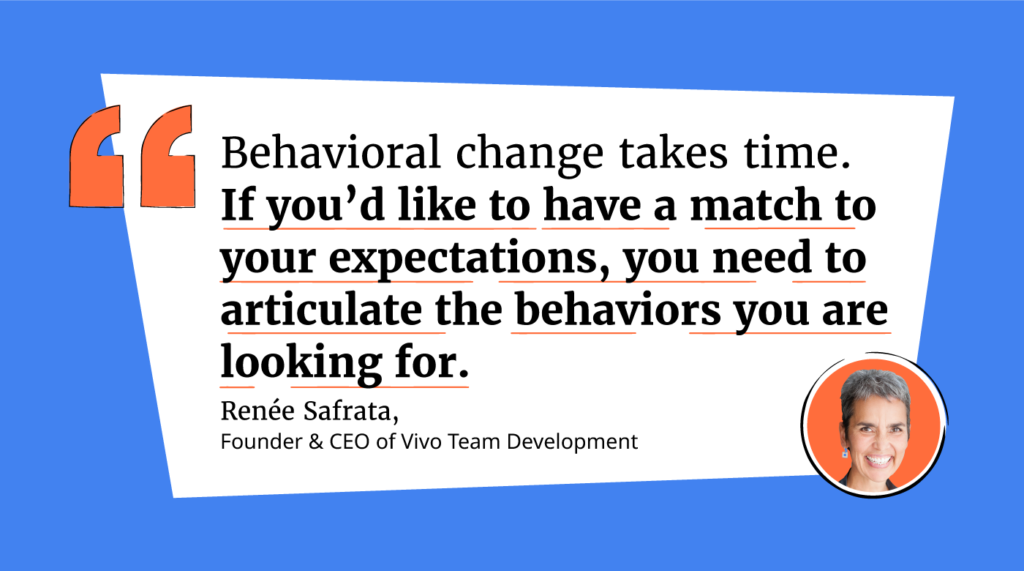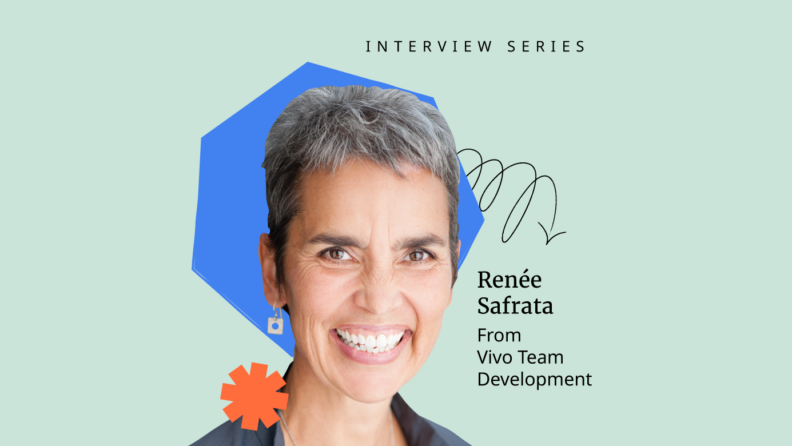We’re passionate about the world of work, and how we can make it better. To help satisfy our curiosity, we’ve launched an interview series where we pick the brains of experienced leaders, business owners, managers, and individual contributors to get their thoughts on how we can collectively build better workplaces.
We’d love to get to know you a bit better, tell us a bit about your backstory.
I was fortunate to grow up with an inspired entrepreneurial childhood. My father was an entrepreneur working with global clients out of his home office in the late sixties and seventies. I am grateful for how this set the context for my career as a solopreneur to then an entrepreneur.
I have owned and operated a small boutique design firm specializing in big-box retail throughout North America, an infant clothing line, a business that brought together CEOs and presidents each month for strategic learning and professional networking, a consulting business, and now Vivo Team Development. Each one has been a stepping stone to the next.
I’m a proud Canadian leading an outstanding team who are across Canada (Halifax, Toronto, and Vancouver).
If we were to ask a friend to describe your personality to us, what would they say?
I think they’d say that I have energy that just keeps ticking, I listen extremely well and I am loyal.
Thinking back to your career journey, what’s an interesting story that stands out?
One of the most interesting stories comes from 2019. As a female business owner in the midst of a capital raise for Vivo Team and a daughter to my best friend, I was faced with a critical choice to continue the raise or to choose to be at my mother’s side as she entered and completed her dying and death experience. I am a richer human being making the choice to be her loyal and best friend.
What’s the most impactful lesson you've learned over your career thus far?
There are so many! I think the top lesson would be to choose to always say “Yes”.
They may be small or big yeses, but keep saying “yes”.
Make decisions quickly. Rely on others and keep learning, unlearning, and relearning.
Thanks for giving us some insight into who you are! Let’s jump into things. When you hear the phrase “build a better world of work”, what comes to mind?
Disrupting employee disengagement and the big quit crisis.
A better world of work means adults solving problems, reaping the rewards of creating outstanding customer experiences, enjoying career achievement and a lifestyle they deem healthy, alive, and prosperous.
For you, what’s the main blocker you see as standing in the way of building a better world of work?
C-Suite executives who value profit over people and planet, meaning that they put the resources towards what they value and are blind to the significant impact investing in people and planet can make for all of us.
What’s one thing within our control that we can practically do to build a better world of work today? And, how do you recommend going about it?
Consider the invisible balance sheet—the people in the company. Value everyone’s contribution, and develop their competence, motivation, and collaboration to connect leaders and teams to be proud of their great work.
What does valuing everyone's contribution look like? And, what steps can someone take to do this?
Recognizing the behaviours demonstrated that match expectations of performance.
For example: "During that client meeting, I noticed you smiling and laughing when you were sharing a recent project story. I noticed the client smiling and enjoying the interaction. Well done!" You created a small personal and professional personable interaction. These interactions build trust over time.
Imagine you have a video camera in your hand tracking behaviors. Then make a point to bring them forward regularly.

What are some recommendations for how to develop competence, motivation, and collaboration?
P=MC3
Performance equals motivation times competence.
Focus on competence and motivation, collaboration will follow. Competence refers to the behaviors or skills required. You may need to model or show and focus an individual. It’s a way to build trust. With motivation, you need to provide support,. e.g., “I saw you build trust with customers in the past, now do the same with the new hires we just added to your team. I know you can do it!”
Can you share one thing you’ve experienced, seen, or read about that is leading us towards a better world of work?
I think COVID has shaken the world of work. If we embrace the paradigm shift over the next decade the nature of work will prove to be significantly different and will foster heightened flexibility of professional and personal lifestyles.
How can our readers follow your work?
Thank you for adding your voice to People Managing People’s interview series on How to Build a Better World of Work!
Add your voice to the conversation
Join our interview series and share your ideas for how we can build a better world of work!


